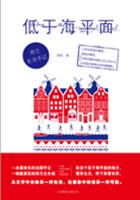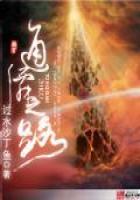SOCRATES: Again, is there not an essence of each thing, just as there is a colour, or sound? And is there not an essence of colour and sound as well as of anything else which may be said to have an essence?
HERMOGENES: I should think so.
SOCRATES: Well, and if any one could express the essence of each thing in letters and syllables, would he not express the nature of each thing?
HERMOGENES: Quite so.
SOCRATES: The musician and the painter were the two names which you gave to the two other imitators. What will this imitator be called?
HERMOGENES: I imagine, Socrates, that he must be the namer, or name-giver, of whom we are in search.
SOCRATES: If this is true, then I think that we are in a condition to consider the names ron (stream), ienai (to go), schesis (retention), about which you were asking; and we may see whether the namer has grasped the nature of them in letters and syllables in such a manner as to imitate the essence or not.
HERMOGENES: Very good.
SOCRATES: But are these the only primary names, or are there others?
HERMOGENES: There must be others.
SOCRATES: So I should expect. But how shall we further analyse them, and where does the imitator begin? Imitation of the essence is made by syllables and letters; ought we not, therefore, first to separate the letters, just as those who are beginning rhythm first distinguish the powers of elementary, and then of compound sounds, and when they have done so, but not before, they proceed to the consideration of rhythms?
HERMOGENES: Yes.
SOCRATES: Must we not begin in the same way with letters; first separating the vowels, and then the consonants and mutes (letters which are neither vowels nor semivowels), into classes, according to the received distinctions of the learned; also the semivowels, which are neither vowels, nor yet mutes; and distinguishing into classes the vowels themselves? And when we have perfected the classification of things, we shall give them names, and see whether, as in the case of letters, there are any classes to which they may be all referred (cf. Phaedrus); and hence we shall see their natures, and see, too, whether they have in them classes as there are in the letters; and when we have well considered all this, we shall know how to apply them to what they resemble--whether one letter is used to denote one thing, or whether there is to be an admixture of several of them; just, as in painting, the painter who wants to depict anything sometimes uses purple only, or any other colour, and sometimes mixes up several colours, as his method is when he has to paint flesh colour or anything of that kind--he uses his colours as his figures appear to require them; and so, too, we shall apply letters to the expression of objects, either single letters when required, or several letters; and so we shall form syllables, as they are called, and from syllables make nouns and verbs; and thus, at last, from the combinations of nouns and verbs arrive at language, large and fair and whole; and as the painter made a figure, even so shall we make speech by the art of the namer or the rhetorician, or by some other art.
Not that I am literally speaking of ourselves, but I was carried away--meaning to say that this was the way in which (not we but) the ancients formed language, and what they put together we must take to pieces in like manner, if we are to attain a scientific view of the whole subject, and we must see whether the primary, and also whether the secondary elements are rightly given or not, for if they are not, the composition of them, my dear Hermogenes, will be a sorry piece of work, and in the wrong direction.
HERMOGENES: That, Socrates, I can quite believe.
SOCRATES: Well, but do you suppose that you will be able to analyse them in this way? for I am certain that I should not.
HERMOGENES: Much less am I likely to be able.
SOCRATES: Shall we leave them, then? or shall we seek to discover, if we can, something about them, according to the measure of our ability, saying by way of preface, as I said before of the Gods, that of the truth about them we know nothing, and do but entertain human notions of them. And in this present enquiry, let us say to ourselves, before we proceed, that the higher method is the one which we or others who would analyse language to any good purpose must follow; but under the circumstances, as men say, we must do as well as we can. What do you think?
HERMOGENES: I very much approve.
SOCRATES: That objects should be imitated in letters and syllables, and so find expression, may appear ridiculous, Hermogenes, but it cannot be avoided--there is no better principle to which we can look for the truth of first names. Deprived of this, we must have recourse to divine help, like the tragic poets, who in any perplexity have their gods waiting in the air; and must get out of our difficulty in like fashion, by saying that 'the Gods gave the first names, and therefore they are right.' This will be the best contrivance, or perhaps that other notion may be even better still, of deriving them from some barbarous people, for the barbarians are older than we are; or we may say that antiquity has cast a veil over them, which is the same sort of excuse as the last; for all these are not reasons but only ingenious excuses for having no reasons concerning the truth of words. And yet any sort of ignorance of first or primitive names involves an ignorance of secondary words; for they can only be explained by the primary. Clearly then the professor of languages should be able to give a very lucid explanation of first names, or let him be assured he will only talk nonsense about the rest. Do you not suppose this to be true?
HERMOGENES: Certainly, Socrates.
SOCRATES: My first notions of original names are truly wild and ridiculous, though I have no objection to impart them to you if you desire, and I hope that you will communicate to me in return anything better which you may have.
HERMOGENES: Fear not; I will do my best.















